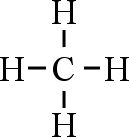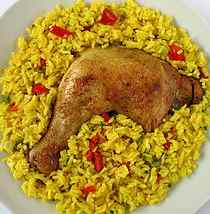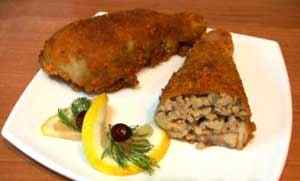Стоить (часть первая)
The verb “to cost” in Russian is стоить:
| Imperfective | |
| Infinitive | стоить |
| Past | стоил стоила стоило стоили |
| Present | стою стоишь стоит стоим стоите стоят |
| Future |
буду стоить будешь стоить будет стоить будем стоить будете стоить будут стоить |
| Imperative | not generally used |
The verb is mostly used in the third person. Bear in mind that the thing whose price you are discussing is the subject of the verb, so the verb has to agree with it:
| Сколько стоит эта машина? | How much does this car cost? |
| Сколько стоят эти джинсы? | How much do these jeans cost? |
| Сколько стоил твой галстук? | How much did your tie cost? |
| Сколько стоила твоя машина? | How much did your car cost? |
The price itself goes into the accusative case. You don't normally notice that it's accusative because the accusative of most numbers is the same as the nominative; but if the cost includes a feminine singular noun like копейка, then you will clearly see the accusative. Likewise the number тысяча ‘one thousand’ is a noun in form, so you may see its accusative form as well.
| Одна конфета раньше стоила одну копейку. | One piece of candy used to cost one copeck. |
| Эти очки стоили тысячу долларов. | These glasses cost a thousand dollars. |
One thing a beginner has to be careful about is the stress on these verb forms since they are different from the forms of стоять, even though they are mostly spelled the same. You can take a look here for a quick review of that verb.
Чай (часть первая)
The Russian word for tea is чай. It declines like this:
| Sg | Pl | |
| Nom | чай | чаи |
| Acc | ||
| Gen | чая | чаёв |
| Pre | чае | чаях |
| Dat | чаю | чаям |
| Ins | чаем | чаями |
Чай first of all means the leaves of the tea plant and the drink made from those leaves. Sample sentences:
| Ты будешь чай? | Would you like some tea? |
| Мама пила чай с молоком и сахаром. | Mom used to drink tea with milk and sugar. |
| Маша никогда не пьёт чай с лимоном, так как у неё аллергия на лимоны. | Masha never drank tea with lemon since she was allergic to lemons. |
| Мой брат предпочитает чай без сахара. | My brother prefers tea without sugar. |
Just as in English, infusions and tisanes of other leaves are also called чай even when they contain no tea leaves:
| Пей мятный чай перед сном, и у тебя будут хорошие сны. | Drink mint tea before bed and you have sweet dreams. |
| Ромашковый чай помогает лучше спать. | Chamomile tea helps you sleep well. |
The plural of the word can mean “varieties of tea,” although it's an uncommon use of the word:
| В китайском квартале Сан-Франциско продаютя всякие чаи. | All sorts of tea are sold in San Francisco's Chinatown. |
Every once in a while you will encounter an old-fashioned u-stem genitive form of this word. Even though it looks like a dative, it's a genitive in meaning, which adds the idea of “some” to the sentence:
| Ты хочешь чаю? | Do you want some tea? |
You may also encounter an old-fashioned u-stem locative form of the word as well. Again, although it looks like a dative, the meaning is locational:
| Тьфу! В моём чаю муха. Я чуть не проглотил её. | Ugh! There's a fly in my tea. I almost swallowed it. |
Водород
Водород is the Russian word for hydrogen. The English word is made up of Greek roots where ὑδρο- (hydro-) means ‘water’ and γεν- (gen-) means ‘‘bring forth/become,” thus hydrogen means “the substance that forms water.” Notice that the Russian word is formed similarly: the root вод- means ‘water’ and the root род- means “give birth to”; thus the Russian words also means “the substance that forms water.” It is not a coincidence that these words have a similar structure. When one language models a new word by following the structure of the word in another language but subsitutes its own roots, that word is called a calque. The use of calques in a language is a very sensible way to build new words. A Russian child can learn the word водород and immediately see a connection between the word and the substance ‘water.’ An English speaking child will most likely never see the connection between hydrogen and water unless he takes a class on English roots or studies Greek.
Just as in English, водород is usually only used in the singular; we rarely say ‘hydrogens.’ It declines perfectly regularly:
| Sg | |
| Nom | водород |
| Acc | |
| Gen | водорода |
| Pre | водороде |
| Dat | водороду |
| Ins | водородом |
Let's explore some sample sentences:
| Молекула воды состоит из двух атомов водорода и одного атома кислорода. | A molecule of water consists of two atoms of hydrogen and one atom of oxygen. |
| Молекулу воды составляют два атома водорода и один атом кислорода. | A molecule of water is composed of two atoms of hydrogen and one atom of oxygen. |
| Молекулы, главные состявляющие которых водород и углерод, называются органическими молекулами. | Molecules whose main components are hydrogen and carbon are called organic molecules.¹ |
| Самая простая органическая молекула — метан. Его составляют один атом углерода и четыре атома водорода. | The simplest organic molecule is methane. It is made of one carbon atom and four hydrogen atoms. |
If you see a diagram of methane in a Russian textbook, you will something like this:

Notice that Latin letters are used, not Cyrillic letters. That's an international convention, which means that when you begin reading Russian chemistry articles, you will be able to understand the diagrams easily, although of course you will still have to learn the Russian names of the elements to discuss them intelligently.
Henry Cavendish is usually credited as first identifying hydrogen as a discrete substance in 1766 (source). Before that, mankind rarely saw the substance in its pure gaseous form on Earth. In the eighteen hundreds it was discovered in the sun and other stars by its spectral signature. This was a great shock. This substance, whose gaseous form was completely outside the day-to-day experience of most ordinary human beings, turned out to be the most common form of matter in the universe.² This strange truth reminds me of a line from the song Fireflies: “Everything is never as it seems.”³ At every moment of every day we should remember that everything is different from what it appears to be, whether the seeming solidity of the table in front of us or the blueness of the sky or the unexpected short-temper of our neighbor. In relating to inanimate things, this should give us a sense of wonder at the beauty and complexity of physical existence. In relating to living beings, it should give us a sense of graciousness and compassion toward the occasional quirks of others since we never truly know the pains that underlie them. In both cases we can be reminded of the incredible privilege of being alive and conscious at this moment.
¹ Not all organic molecules necessarily have hydrogen. I'm fudging for the sake of this blog entry.
² Nowadays some scientists posit that the majority of the universe's mass may be in dark matter, which has a corollary that hydrogen may not be the most abundant substance in the universe. Nota bene: even those who are expert in their subject may have to radically shift their views on subjects they know well, thus we should all hold our opinions with an easy grace, open to change.
³ The most common way to say this in English is “Nothing is ever as it seems.” Adam Young showed a beautiful artistic touch when he rephrased it in this song.
Закрываться/закрыться
Another common verb pair for “to close” in Russian is закрываться/закрыться:
| Imperfective | Perfective | |
| Infinitive | закрываться | закрыться |
| Past | закрывался закрывалась закрывалось закрывались |
закрылся закрылась закрылось закрылись |
| Present | закрываюсь закрываешься закрывается закрываемся закрываетесь закрываются |
No such thing as perfective present in Russian. |
| Future |
буду закрываться будешь закрываться будет закрываться будем закрываться будете закрываться будут закрываться |
закроюсь закроешься закроется закроемся закроетесь закроются |
| Imperative | закрывайся закрывайтесь |
закройся закройтесь |
This is a reflexive verb. Reflexive verbs are verbs that add the prefix -ся or сь after the standard endings. Reflexive verbs usually have meanings that are somewhat different from their non-reflexive verbs. Sometimes they have a passive meaning, sometimes a habitual meaning, sometimes other meanings. For this verb the reflexive forms has a ‘medio-passive’ meaning. Thus:
| Магазин закрывается в пять часов. | The store closes at five o'clock. |
| Здесь построят новый магазин, который никогда не будет закрываться, то есть он будет открыт круглые сутки. | They are going to build a store here that will never close; that is, it will be open round the clock. |
| Утром двенацатого февраля в Тбилиси временно закрылся аэропорт. (source) | On the morning of February twelfth the airport in Tbilisi closed temporarily. |
Куриный окорочок
 In the early nineties, when the Soviet grocery stores were nearly empty, куриные окорочка “chicken legs” (the cut that has leg and thigh) became very popular. They were called ножки Буша “Bush’s legs” because of the trade agreement that was signed between Mikhail Gorbachev and George H. W. Bush. The agreement made the United States the largest exporter of frozen chicken drumsticks to the former USSR (now the Russian Federation).
In the early nineties, when the Soviet grocery stores were nearly empty, куриные окорочка “chicken legs” (the cut that has leg and thigh) became very popular. They were called ножки Буша “Bush’s legs” because of the trade agreement that was signed between Mikhail Gorbachev and George H. W. Bush. The agreement made the United States the largest exporter of frozen chicken drumsticks to the former USSR (now the Russian Federation).
I remember when I was growing up they were everywhere: from a major celebration to a family dinner. Because they were cheap, housewives all over Russia would try to find more and more ways to prepare them. They would put them in various soups and cold salads or stuff them with liver pate and mushrooms.

| — Что купить на рынке? — Картошку, зелень и куриные окорочка. |
“What should I buy at the market?” “Potatoes, greens and chicken drumsticks.” |
| — Что ты собираешься готовить из куриных окорочков? — Я думала их просто поджарить. |
“What are you going to make out of chicken drumsticks?” “I just thought I’d fry them.” |
| Можешь мне испечь куриный окорочок, а я почишу картошку для пюре? | "Could you bake me a chicken drumstick and I will peel potatoes for the mashed potatoes." |
| — Ты читала, что говорят о куриных окорочках? — Да, я слышала, что они вредные из-за гормонов, которые используются для выращивания куриц. |
“Did you read what they say about chicken drumsticks?” “Yes, I heard that they are unhealthy because of the hormones that are used to raise the chickens.” |
Окорочок “drumstick” is diminutive for окорок, which means the leg and hip portion of an animal prepared as food.
| Sg | Pl | |
| Nom | окорочок | окорочка |
| Acc | ||
| Gen | окорочка | окорочов |
| Pre | окорочке | окорочках |
| Dat | окорочку | окорочкам |
| Ins | окорочком | окорочками |
Here is a funny cartoon called Масяня. It is very popular in Russia. In this particular episode the creators are poking fun at how Russians speak (or rather don't speak) English.
<< 1 ... 69 70 71 ...72 ...73 74 75 ...76 ...77 78 79 ... 158 >>